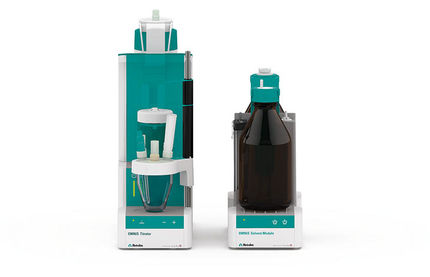To use all functions of this page, please activate cookies in your browser.
my.chemeurope.com
With an accout for my.chemeurope.com you can always see everything at a glance – and you can configure your own website and individual newsletter.
- My watch list
- My saved searches
- My saved topics
- My newsletter
John J. RaskobJohn Jakob Raskob (1879-1950) was a financial executive and businessman for DuPont and General Motors, and the builder of the Empire State Building. He was chairman of the Democratic National Committee and a key supporter of Alfred E. Smith's candidacy for President of the United States. After Franklin D. Roosevelt became President, Raskob was a prominent opponent of the New Deal through his support of a number of anti-Roosevelt organizations including the American Liberty League. Raskob was also a leader in the Association Against the Prohibition Amendment. Product highlightCareerHe was hired in 1901 by Pierre du Pont as a personal secretary. In 1911, he became assistant treasurer of DuPont, in 1914 treasurer, and in 1918 vice-president for finance of both DuPont and General Motors (Raskob had been an early investor in General Motors and had engineered DuPont's ownership of 43% of GM, purchased from the financially troubled William C. Durant. While with GM, he led the creation of General Motors Acceptance Corporation, the corporation that allowed GM dealers to offer installment credit directly to customers. He also promoted the use of standard financial statistics to measure the performance of different operations within a diversified company, primarily through his associate Donaldson Brown. Raskob was very bullish in the stock market in the 1920s and wrote an article for Ladies Home Journal entitled "Everybody Ought to be Rich." He suggested that every American could become wealthy by investing $15 per week in common stocks. Raskob held the head financial job at both GM and DuPont until 1928, when he resigned from GM in a dispute with chairman Alfred P. Sloan. He had supported Democratic presidential candidate Al Smith in the 1928 election, and Smith invited Raskob to become chairman of the Democratic National Committee. Sloan, a supporter of Herbert Hoover, insisted that Raskob resign either from GM or the DNC. Raskob left GM after the board supported Sloan, sold his GM stock, and used the proceeds to build the Empire State Building. Raskob made Smith president of the Empire State Co., that operated the building, based on a promise to do business together the night that Smith lost the presidential election. Raskob served as chairman of the DNC through 1932. He continued to promote the Smith candidacy as Chairman of the DNC, and to advocate for the adoption of an anti-prohibition policy. Both of these positions were opposed by different factions within the Democratic Party, and in 1932, when Franklin D. Roosevelt won the party's nomination, and the election, Raskob withdrew from politics. He was later involved with the American Liberty League, an anti-New Deal organization active around the time of the 1936 election. Among his long-time achievements, John J. Raskob is well known in the Claymont and Wilmington Delaware areas for building the "Patio" at what is now Archmere Academy in the late 1920s. The Patio was originally his residence, and one of its most significant features is a fountain made of marble, which has each of his 13 children sculpted around the side. Archmere Academy, which has built many buildings since, is now a thriving school, and one of the top high schools in Delaware. Raskob's business interests from this time were focused on the Empire State Building, but also included extensive precious metal mining interests in Nevada and New Mexico. Raskob remained with DuPont until his retirement from the company in 1946. Raskob had 13 children, and lost one son, William F. Raskob II, to an auto accident at the age of 20, establishing a charitable foundation in his honor which survives to this day.[1]. In 1921, he was appointed a Knight of St. Gregory by Pope Pius XI, recognizing him for his contributions.[2] After his death, a substantial amount of his wealth went to support the Raskob Foundation for Catholic Activities which had been founded in the mid-1940s, and remains one of the largest family-operating charitable foundations in the U.S.[3] In 2006, RFCA was chaired by William F. Raskob III. John J. Raskob is buried at Cathedral Cemetery in the city of Wilmington, DE.[citations needed] ReferencesSee alsoHagley Library's on-line exhibit and inventory of the John J. Raskob papers. Repeal organizations
|
||
| This article is licensed under the GNU Free Documentation License. It uses material from the Wikipedia article "John_J._Raskob". A list of authors is available in Wikipedia. |







